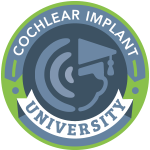College Preparation
In addition to academic and extracurricular preparation for college, you should figure out what accommodations work for you academically. This will give you a starting point to ask for accommodations in college.
High school is also the best time to practice asking for the accommodations you need so you have the confidence and skills to do this yourself in college. You should work with your parents, teachers, and others to become more involved in your IEP or Section 504 plan if you have one. If you don’t, you should work with your parents, teachers, and counselor to develop a plan to ensure you’re on track for college.
As a sophomore, you have plenty of time to research colleges and figure out what accommodations work for you academically.
Here are some common accommodations you might want to request:
- Closed captioning on videos
- Copies of the notes or PowerPoints from the class
- Notetaker
You can also set up a meeting with your teachers to ask them to specifically:
- Use as many visual supports as possible
- Write down all assignments/tests on a board, handout, or online
- Face the class when speaking
If you have an IEP or Section 504 plan, you can also begin participating in the meetings if you have not yet done so. Now is a good time to familiarize yourself with the process of educational goal-setting and accommodation selection.
As a junior, you should be well on your way to choosing colleges to which you’d like to apply and planning college visits. Your junior year is also the best time to take standardized tests, such as the ACT and SAT, that most colleges require for admission.
As a student with cochlear implants, you may be eligible for accommodations for standardized tests. Accommodations are important to reduce potential barriers that may lead to unfair testing. For example, some test items may presume students have experience with sound, such as a reading about music.
Some testing accommodations, such as additional time or a separate room for testing, are available to students for many reasons. Other accommodations are more specific to students who have hearing loss, such a sign language interpreter to translate the test directions, or in some cases, modifications to test directions themselves.
You should discuss testing accommodations and your eligibility with your counselor and if applicable your IEP or Section 504 team. You should try the testing accommodations during a practice test and then contrast your practice test results without an accommodation. Every student responds to accommodations differently, so trying accommodations ahead of time will help you determine what works best for you.
If you have an IEP or Section 504 plan, you should continue to participate in the meetings. Now is a good time to become more involved in the process of educational goal-setting and accommodation selection.
As a senior, you should be well on your way to understanding what types of accommodations work best for you and how to ensure that you receive them. You should also begin thinking about what accommodations you will need in college to address bigger lecture halls, more ambient noise. As you continue visiting colleges, try to sit in on a class or two, especially in a larger lecture hall to get a sense of what is most challenging for you and how you can address it. You can also use this information and information about what accommodations a college can provide when you make your final decision about what school admission offer to accept.
If you have an IEP or Section 504 plan, you should take a very active role during the meetings. You senior year is also the best time to update your IEP or Section 504 plan because your college may use this information as documentation to provide accommodations.
Visit the College planning and College visit sections of this website for more tips to prepare for your transition to college.
For general college preparation tips, there are numerous websites available, including the Princeton Review and Big Future by the College Board.

